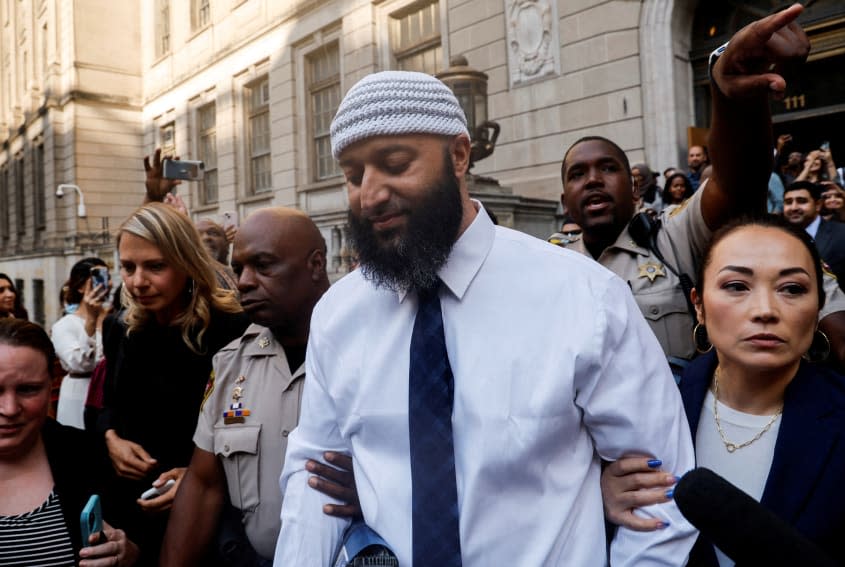The Adnan Syed case, explained

The Appellate Court of Maryland recently ruled to reinstate the murder conviction of Adnan Syed, the subject of the Peabody Award-winning Serial podcast. The move comes after Syed was freed in 2022. Here's what you need to know about the case.
What is the background?
In 1999, about a month after she disappeared, the body of Hae Min Lee was discovered in a Baltimore park. Lee, an 18-year-old high school student, had been strangled to death. During the investigation into her murder, cell phone data led the police to Syed, Lee's ex-boyfriend. He was eventually arrested and pleaded not guilty to the charges. The following year, a jury found Syed, who was 17 at the time, guilty of murder, robbery, kidnapping, and false imprisonment in connection with Lee's death, The New York Times reports. Syed was sentenced to "life plus 30 years in prison", The Washington Post says. "He and his attorneys waged a long but unsuccessful battle in appellate courts to have his conviction overturned."
Fourteen years after his conviction and numerous failed appeals, the Serial podcast "raised doubts about the facts around the case," the Times writes. The series revealed "the existence of an alibi witness," Asia McClain, who claimed she was with Syed at the library at the time of the murder. She said she had been willing to testify on his behalf, but his lawyer never contacted her. The podcast also "questioned the credibility of the cellphone tower records and revealed that physical evidence gathered in 1999 was never tested for Mr. Syed's DNA," per the Times. The series was downloaded over 100 million times in its first year, "bringing widespread public attention to the case."
In 2015, Syed was granted a new hearing to present new evidence, which led to the courts granting a new trial. The decision to give him a retrial was held up in 2018 and then reversed the following year. That year, an HBO docuseries, The Case Against Adnan Syed, revealed that DNA tests performed at the defense's request did not reveal anyone else's DNA on Lee's body or belongings.
Prosecutors from the Baltimore City state's attorney's office began to review the case in 2021. The following year they requested that Syed's conviction be vacated since they'd "lost confidence in the integrity of his convictions." The judge granted the request in September 2022, setting Syed free, the Post says.
Why exactly was the conviction reinstated?
On March 28, the Appellate Court of Maryland ruled that the lower court violated the right of Lee's brother, Young lee, to be notified of the hearing in time to appear in person, subsequently reinstating Syed's conviction, per the Times. The appeals court ordered the trial court to have a new hearing on the motion to vacate, which would give her brother enough notice to attend in person, "unlike the previous hearing, which he joined via Zoom." The appellate court also called for a more "transparent" hearing, "suggesting to prosecutors that they lay out, in more detail, the evidence and reasoning for undoing the conviction," the Post explains.
Erica J. Suter, Syed's lawyer, said the pair planned to appeal the appeals court's decision to the Supreme Court of Maryland, per the Times. "There is no basis for re-traumatizing Adnan by returning him to the status of a convicted felon," Suter said in a statement. "For the time being, Adnan remains a free man." She added: "Ensuring justice for Hae Min Lee does not require injustice for Adnan."
Will he go back to prison?
The appeals court issued a 60-day stay of its ruling to give both sides time to figure out how to move forward, meaning Syed will not be required to return to prison immediately, David Sanford, one of Mr. Lee's lawyers, told the Times. While the court's decision was "stunning and surprising," Doug Colbert, a law professor who briefly represented Syed in 1999, told the Times, it's unlikely the new hearing will change the outcome of the case. "It's really difficult to envision something new occurring at the do-over proceeding," Colbert said.
Still, Vox says, the new ruling might "serve as a useful reminder to the court to prioritize victims' rights — even in a case where it appears a wrongful conviction may have occurred." The decision is good news for "those fighting for a greater voice for crime victims," the Times writes. "It is precedent-setting," victims' rights lawyer Paul Cassell told the Times. "I think what this case shows is when the spotlight is on, and when attorneys are available to assert victims' rights, then victims' rights are respected."
You may also like
5 scandalously funny cartoons about the 'David' debacle
Scientists break record for fish filmed in deepest waters to date
A plant-filled home could help prevent infections, study finds

